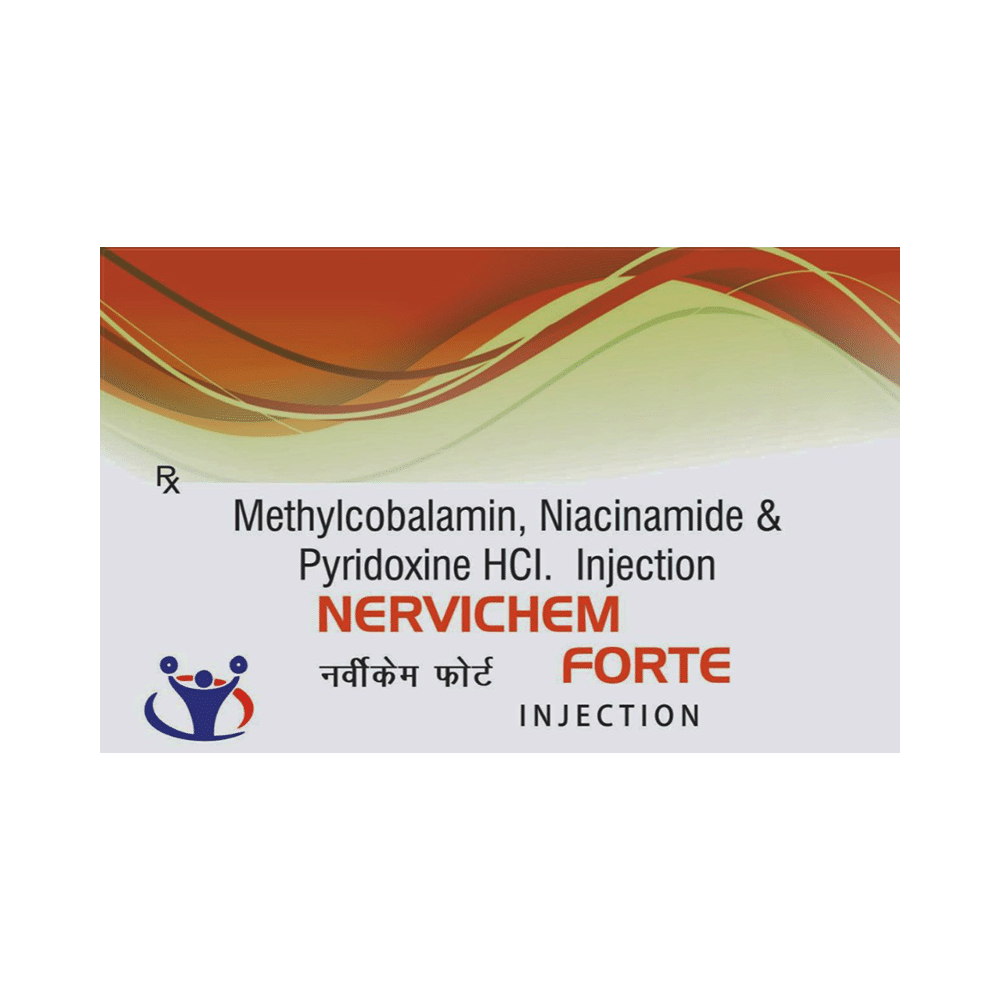
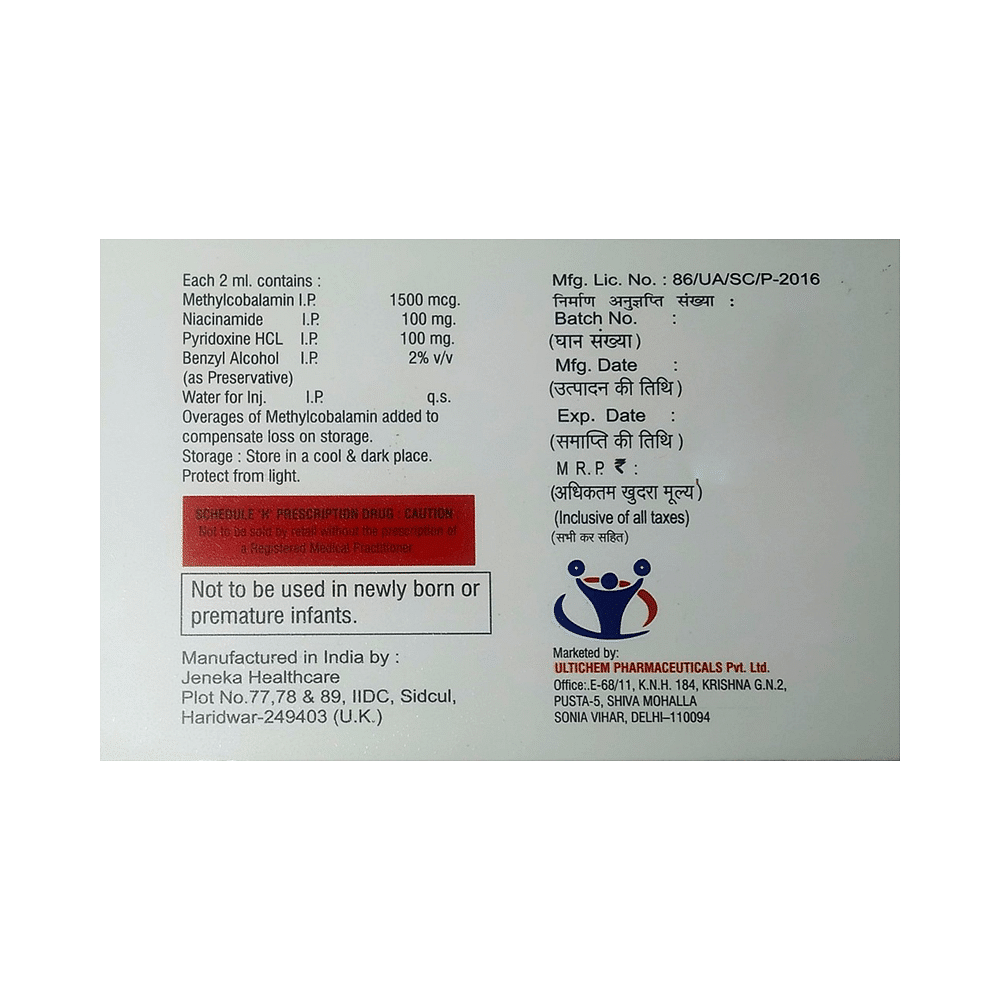
Nervichem Forte Injection
Manufacturer
Ultichem Pharmaceuticals Pvt Ltd
Salt Composition
Methylcobalamin (1500mcg) + Niacinamide (100mg) + Vitamin B6 (Pyridoxine) (100mg)
Key Information
Short Description
Nervichem Forte Injection is a supplement medicine that helps treat vitamin and other nutritional deficiencies, ensuring proper growth and functioning of the body.
Dosage Form
Injection
Introduction
Nervichem Forte Injection is administered under the supervision of a healthcare professional. Do not self-administer this injection. Inform your doctor if you have any known allergies to this medication. You may experience symptoms of injection site reactions such as redness, swelling, and pain. Usually, they go away with time but do consult your doctor if these symptoms persist for a longer duration. Inform your doctor if you are suffering from any disease or are taking any other medicines.
Directions for Use
Your doctor or nurse will give you this medicine. Kindly do not self administer.
Safety Information
Side Effects
No common side effects listed.
Alcohol Warning
Caution is advised when consuming alcohol with Nervichem Forte Injection. Please consult your doctor.
Breastfeeding Warning
Nervichem Forte Injection is safe to use during breastfeeding. Human studies suggest that the drug does not pass into the breastmilk in a significant amount and is not harmful to the baby.
Pregnancy Warning
Information regarding the use of Nervichem Forte Injection during pregnancy is not available. Please consult your doctor.
How it works
Nervichem Forte Injection is a combination of three nutritional supplements: Methylcobalamin, Niacinamide, and Vitamin B6 (Pyridoxine) which replenishes the body's stores of important nutrients.
Quick Tips
Nervichem Forte Injection helps treat vitamin B deficiency. Inform your doctor if you are also taking medication for parkinson’s disease such as levodopa. Inform your doctor if you are pregnant or breastfeeding.
Related Medicines
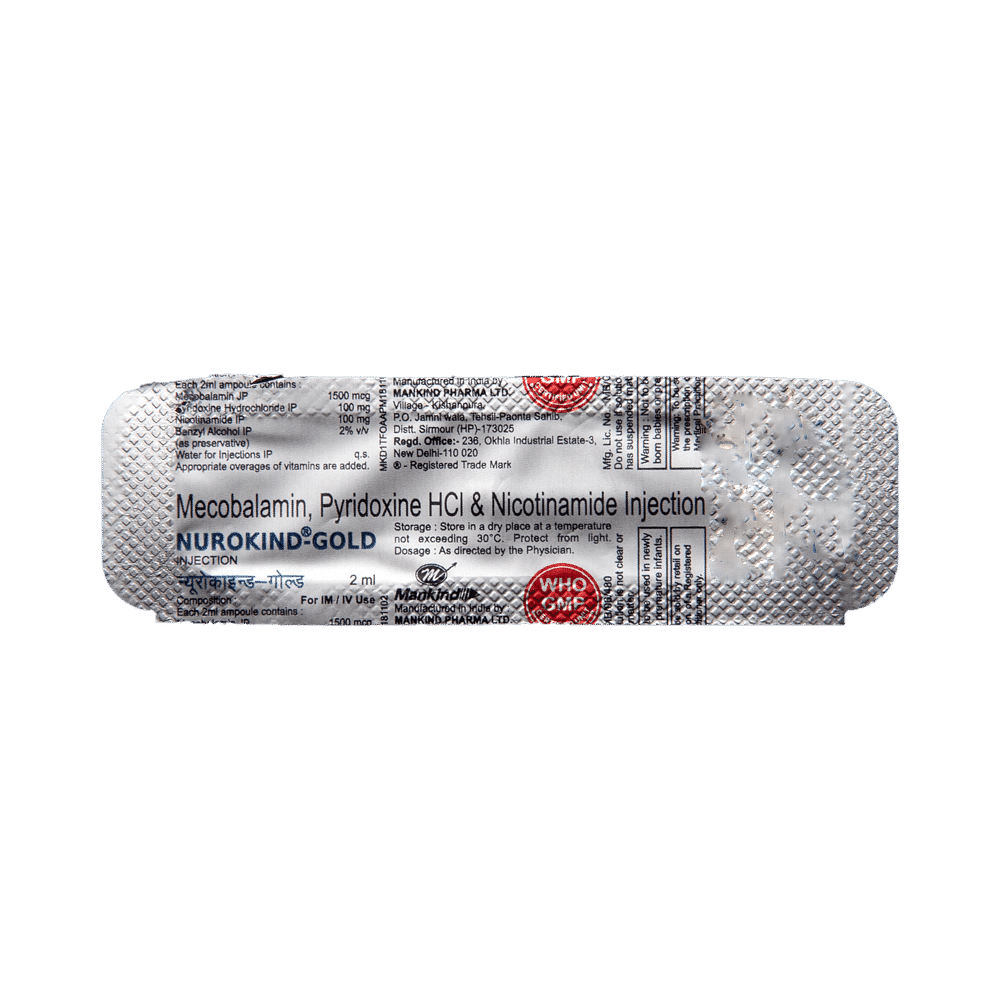
Nurokind-Gold Injection
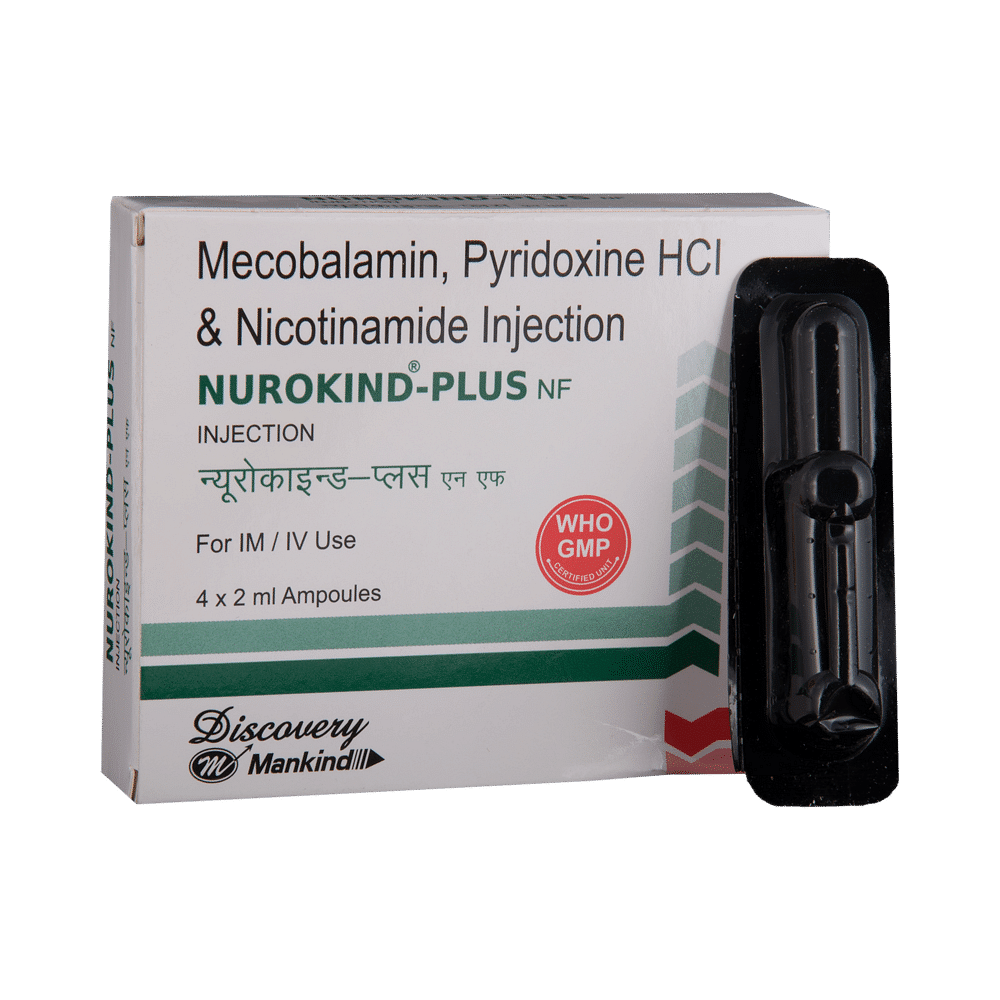
Nurokind-Plus NF Injection

Nurokind Plus Injection
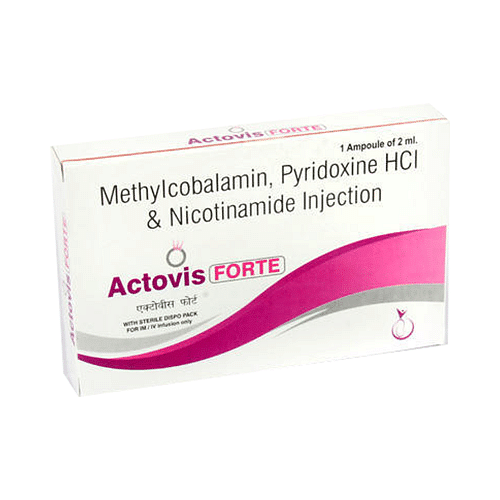
Actovis Forte Injection

Nuroryt Plus Injection

Mecolip Injection

Nerulab Forte Injection

Methyron Gold Injection

Nervomed-Plus Injection
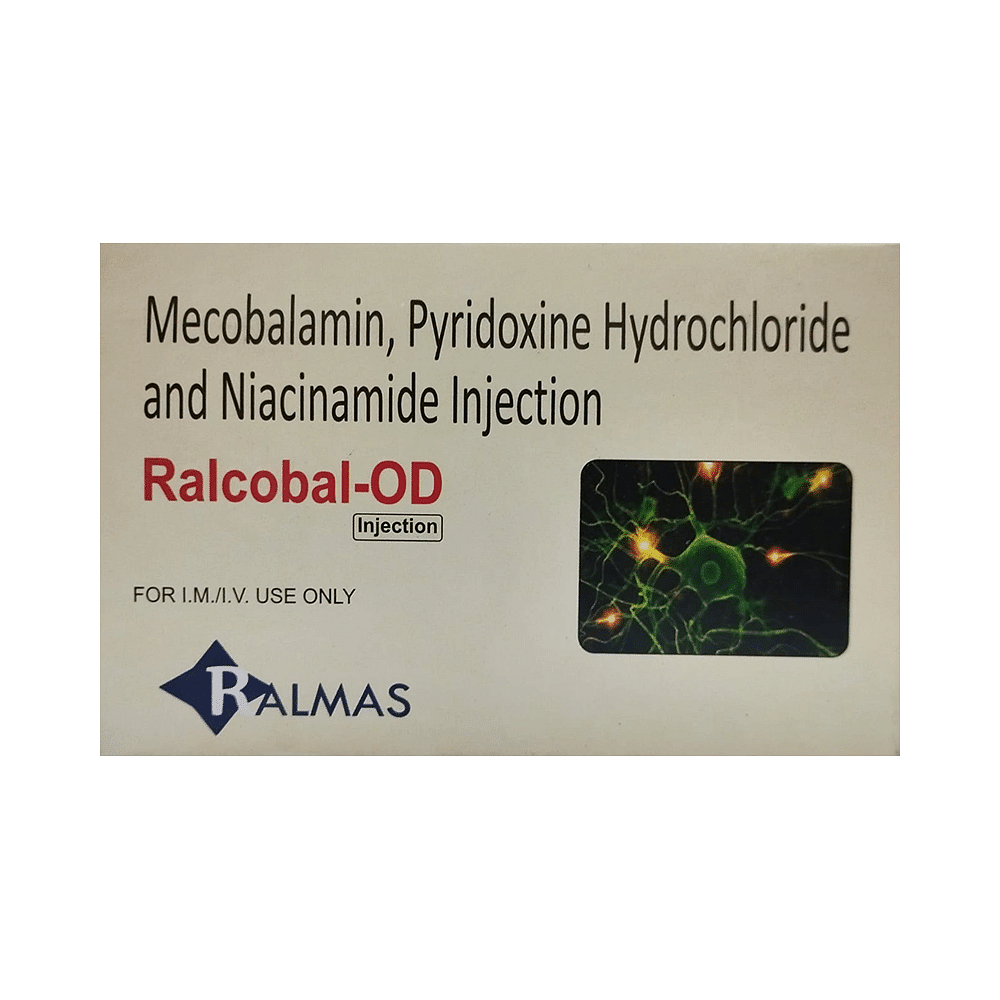
Ralcobal-OD Injection
Frequently asked questions
What is Nervichem Forte Injection?
Nervichem Forte Injection contains a combination of Nicotinamide, Cyanocobalamin, and Folic acid. This injection is prescribed to treat or prevent vitamin deficiencies. Vitamin deficiency can lead to anemia and other nerve-related issues.
What is Vitamin deficiency anemia?
Vitamin deficiency anemia is a condition characterized by a lack of healthy red blood cells, resulting from insufficient amounts of certain vitamins. Common examples include folic acid, vitamin B-12, and vitamin C. Issues with absorption or processing also can lead to this condition. While vitamin deficiency anemia typically responds favorably to supplements and dietary adjustments.


